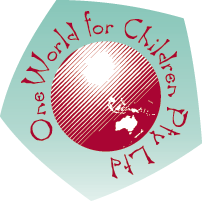How do you rate in the parenting stakes? ‘How to be a Great Parent’
Following is a list of characteristics that make a great parent, see how many of the following can you tick off:
- Do you show your child unconditional love? This means loving your child while putting boundaries on unacceptable behaviour.
- Are you a good listener? Taking time to really listen and hear what is being said. Trying to reflect and validate feelings. We all appreciate being listened to; we don’t always want to be told what to do.
- Do you show your children consistent and loving limits? Trying to be consistent is probably the hardest part of being a parent. One of the most essential aspects to our job as parents is to provide clear guidelines about what is acceptable and what is unacceptable behaviour. Most children will push the boundaries at some time and we need to be strong enough to stand firm and let our ‘stop’ mean ‘stop’.
Does your child’s safety and well-being come first? As parents our children are dependent on us to provide them with security in both a physical and emotional sense. We are the adults and need to take responsibility for keeping our children safe and out of harms way.
- Do you encourage positive behaviour and discourage negative? It is easy to speak up when children are doing the wrong thing or being annoying, but how often do we acknowledge when they are doing the right thing? If we give positive reinforcement for the positive behaviours, it is more likely that these will be repeated. Use praise sincerely and frequently.
- Do you keep the promises you make to your child/children? Children take your word and believe what you say, until you change your mind. Make sure you are giving clear, realistic messages to your children. Don’t make promises you can’t keep or suggest consequences you don’t intend to follow through on.
- Are you supportive and interested in what your children are doing? Children like their parents to be involved, whether this is at school, helping in the classroom or canteen; helping to complete a puzzle; or cheering at netball or football. Parents who are involved in their child’s activities make the child feel special and valued.
- Do you have realistic expectations of your child’s behaviour? A child’s physical, social and emotional stage of development, limits what they can and cannot do. This is valid for all ages - from not expecting a toddler to do something that a five year old can do through to not expecting a teenager to behaviour like an adult.
- Do you model the behaviours that you want your child to develop? Children learn through observation, what they see can have a greater impact than what they hear. It is difficult for a child to learn if they have no consistent model to base their behaviour on, or if the desired behaviour is not part of their everyday family life. Telling them to do or not to do something has little impact if it is a behaviour they are continually exposed to by those near to them.
- Do you have fun together? Parenting can be hard work. You need to build in some fun time, doing things together that you enjoy. It is easier to parent the child you like as well as love. Generally children under 10 really enjoy spending time with their parents. As children enter their teen years, they often prefer to spend time with their peers, so make the most of the time with younger children. A trip to the park will do more to build your relationship than washing the floors!
HAPPY PARENTING!
For more information sheets on childcare and family, visit City of Greater Geelong Family/Regional Parenting Service






